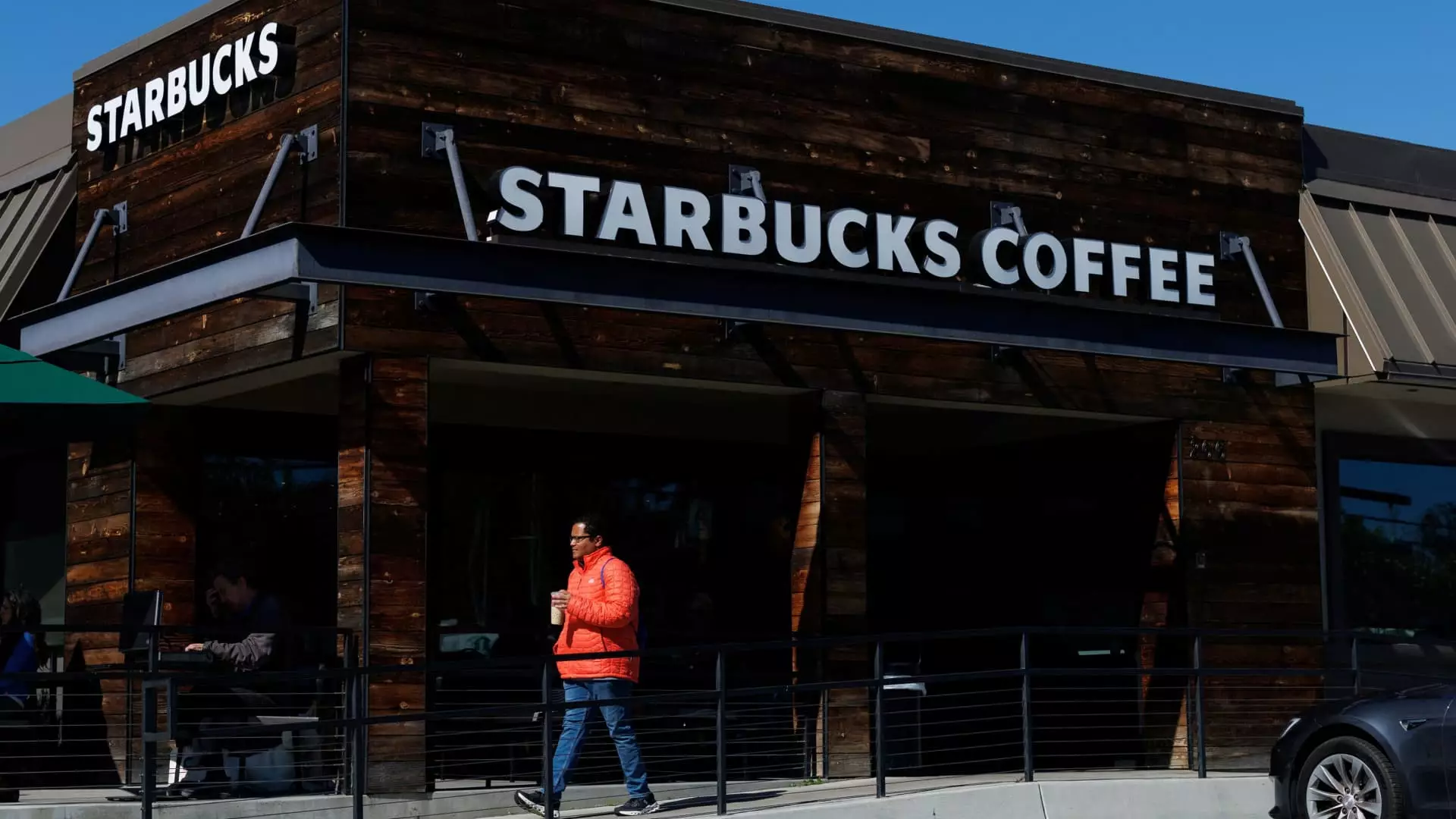In the realm of investment, few things spark panic quite like the specter of a recession looming on the horizon. Recently, restaurant stocks have taken a nosedive amidst a flurry of economic concerns, spurred chiefly by President Trump’s abrupt announcement of high tariffs on imports from essential trading partners. Investors are not just reacting to tariffs on tangible goods but are grappling with the broader implications of reduced consumer spending and the inevitable inflation that could follow. This steep decline in restaurant-related stock indicates a battle—not solely with the tariffs themselves but with the psychological and financial pressures mounting on the American consumer.
The Ripple Effect of Tariffs
While analysts assert that the immediate financial impact of tariffs on the restaurant industry is manageable, the eventual consequences of inflation are where the real peril lies. As consumers find their wallets increasingly pinched, dining out—a luxury for many—could become a much less viable option. UBS analyst Dennis Geiger highlighted this pressure, suggesting that it’s not merely the cost of goods that poses a threat but the overarching decline in demand from cash-strapped consumers.
Chain restaurants like Starbucks, which boasted a steady rhythm of growth, are now dancing on a precarious ledge. After a recent downgrade by Baird, the coffee giant’s stock saw a fall of over 2%. The connection to tariffs may seem indirect; however, the growing notoriety of anti-American sentiment and impending recession fears are already reshaping customer attitudes.
Political Undertones and Consumer Behavior
The phrase “anti-American sentiment” encapsulates a disturbing new landscape for brands like Starbucks, which operate globally. With high tariffs levied against coffee-exporting nations such as Brazil and Vietnam, coffee prices cannot help but rise. Most consumers are oblivious to the complexities and climate restrictions that govern coffee farming; nonetheless, they are acutely aware of the rising prices at their local cafe. When the cost of a latte climbs too high, even loyal patrons may opt for a cheaper alternative or forego their daily indulgence altogether.
The political chess game between nations is further complicating matters, as consumers in countries like China—one of Starbucks’ most important markets—have previously engaged in boycotts of Western brands due to political tensions. This has created an unpredictable environment for companies that heavily rely on international sales.
A Broader Downturn in Dining Experiences
It’s not just the coffee giants that are feeling the pinch. Casual dining establishments such as Dine Brands, which oversees Applebee’s and IHOP, have also been negatively affected, showing declines of nearly 3%. Fast-casual chains once praised for their resilience, such as Chipotle and Sweetgreen, are likewise taking hits. The paradigm shift from casual to quick-service dining amid economic uncertainty is evident.
Interestingly, although fast-food restaurants typically thrive in recessions, recent trends suggest that they aren’t immune to the fluctuating consumer spending patterns. For many low-income families, reduced disposable income could mean opting not to eat out at all. Those in higher income brackets might continue dining similarly but may also reconsider their outlays, potentially leading to declined sales even in established fast-food chains like McDonald’s and Yum Brands.
Unique Resiliences and Market Responses
Amidst the chaotic landscape, there remain glimmers of hope. Brands like Dutch Bros., a rising competitor in the coffee space, managed a 4% gain in stock after a turbulent few days. Meanwhile, Cava, a newer player, enjoyed over a 6% rise, illustrating that not all stocks are drowning in fear. The ability of these companies to pivot and capture consumer interest during uncertain times will be crucial in navigating the upcoming economic climate.
Ultimately, the ongoing saga of restaurant stocks brings attention to a fundamental truth: the essence of consumer behavior is deeply intertwined with the political and economic fabric of society. As uncertainty looms, the dining landscape is set to evolve in unexpected ways, forecasting a marketplace where adaptability and innovation will be paramount. The recovery or continued decline of restaurant stocks may offer valuable lessons on resilience amid struggle, and those lessons may redefine the industry for years to come.

